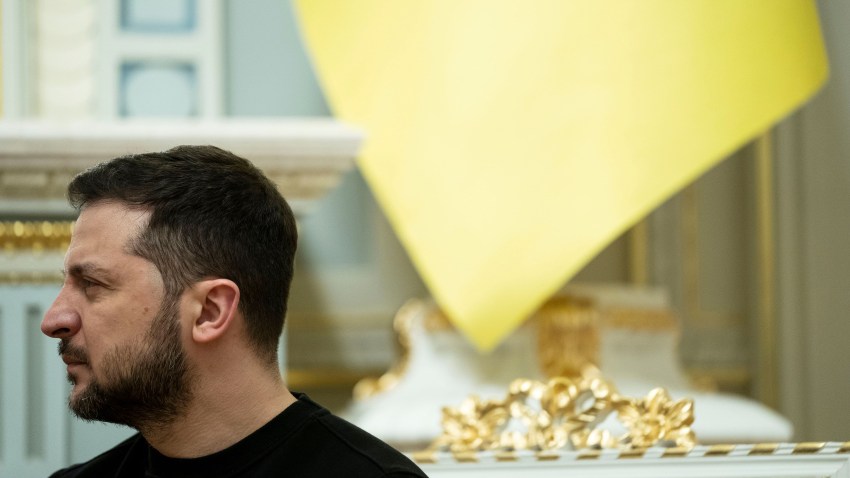Today at WPR, we’re covering Egypt-Ethiopia tensions about a Nile River dam and Lula’s proposed agenda for Brazil’s G-20 presidency.
But first, here’s our take on today’s top story:
War in Ukraine: President Volodymyr Zelenskyy will make his second trip to the U.S. since Russia’s invasion of Ukraine this week, beginning with attendance at the U.N. General Assembly meeting on Tuesday before traveling to Washington for a meeting with congressional leaders and a visit to the White House. (New York Times)
Our Take: While Zelenskyy’s trip to Washington will surely grab more headlines this week, his stop at the U.N. General Assembly shouldn’t be overlooked, especially amid shifting dynamics that have forced Ukraine to alter its diplomatic strategy for mobilizing support in defending itself against Russian aggression.
Get the Daily Review sent straight to your inbox every weekday.
Simply put, the war in Ukraine has become diplomatically inseparable from demands by countries of the Global South that the world pay attention to their grievances, as a result of the West’s attempts to line up support for Ukraine and condemnation of Russia in multilateral institutions like the U.N. and G-20. That has given the Global South countries greater opportunities to make their concerns known at these high-profile forums—and more leverage to ensure they are addressed.
In the attention economy of international politics, however, that has created an almost competitive dynamic between support for Ukraine and support for the Global South’s concerns. That was on full display at the G-20 summit, where the U.S. decided that maintaining positive relations with Global South countries in the group—in part due to Washington’s strategic competition with China—was more important than holding out for a full condemnation of Russia in the summit’s declaration.
Now, more than a year-and-a-half since Russia’s invasion, Ukraine and Zelenskyy will have to navigate this new dynamic in order to maintain international attention on the war, which is key to its hopes for securing the support it needs to succeed. This does not mean that Ukraine is or will be losing that support—particularly in the U.S. and Europe, where it is most crucial—or that its cause is any less just than before, but rather that generating and maintaining it will become increasingly challenging and require more engagement with the Global South.
U.S.-Iran: Five Americans who had been imprisoned in Iran were allowed to leave the country today, as part of an agreement that also saw the U.S. unfreeze around $6 billion in frozen Iranian funds to be used for humanitarian purchases. (New York Times)
Read our take on the agreement in the Daily Review from August 11, when the deal was first reported.

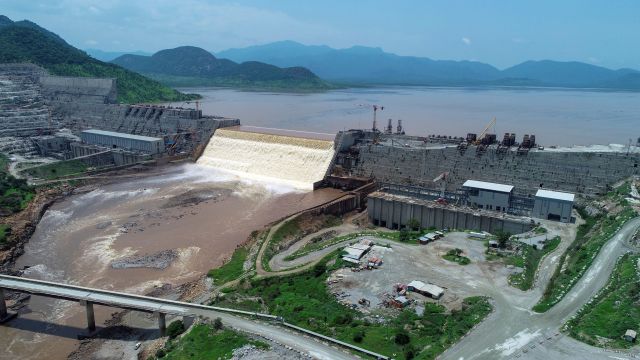
BRICS Now Owns Egypt and Ethiopia’s Nile Dam Dispute
Last month, the BRICS grouping agreed to expand its membership to, among others, Egypt and Ethiopia. In doing so, BRICS has absorbed a complex regional conflict into its midst, raising questions about the group’s potential to shape global affairs.
The conflict stems from Ethiopia’s Grand Ethiopian Renaissance Dam project, a $4.2 billion mega-dam on the Nile River that is in its final stages of completion. As Jonathan Fenton-Harvey writes, the project has exacerbated long-standing Egyptian fears of losing access to vital Nile waters and highlights the current failures of diplomacy aimed at resolving the dispute.
Lula Might Already Be Torpedoing Brazil’s G-20 Leadership
Brazilian President Luiz Inacio Lula da Silva used the recent G-20 Summit to announce that his key focus for Brazil’s G-20 presidency, which begins in December, will be ending global hunger by 2030.
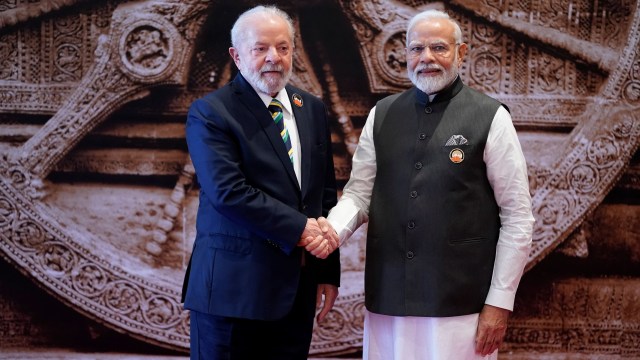
That proposed agenda is Lula at his best—taking an issue that he has addressed with some success in Brazil to the global level. Unfortunately, as columnist James Bosworth writes, Lula’s other comments at the G-20 Summit ensured that nobody paid attention to or cared about his agenda for the coming year.

Question of the Day: At the start of 2023, the Bulletin of Atomic Scientists set their doomsday clock to what time?
Find the answer in the latest WPR Weekly Quiz, then read Charli Carpenter’s column on the blindspot in the debate over nuclear security.

Officials in the Central African Republic say that the Russian government is moving to take direct control of the Wagner Group’s operations there, following the death of Wagner boss Yevgeny Prigozhin last month. Wagner has more than 1,000 mercenaries currently in CAR, where the group has been operating since 2018.
In an in-depth article in July, Christopher Faulkner, Raphael Parens and Marcel Plichta predicted that Russia may take direct control over security partnerships in Africa in the aftermath of the Wagner mutiny, as the Kremlin has clearly found value in deploying semi-private military companies to high-risk areas far from its borders. Now, with Wagner’s prospects looking dim, the West needs to focus on making the Wagner model unviable.
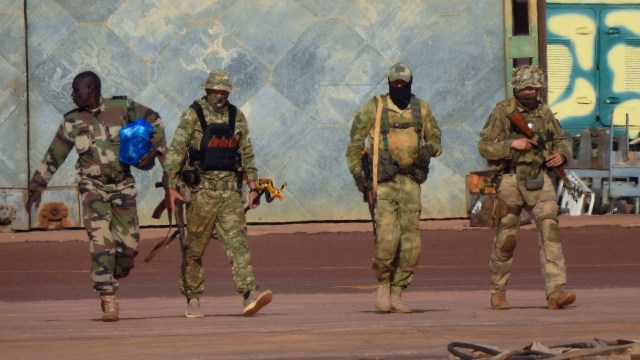
The West Needs to Prepare for the ‘Next Wagner’ in Africa
July 20, 2023 | The Wagner Group’s failed rebellion in Russia has created uncertainty about its future operations in Africa. Read more.
Malaysian PM Anwar Ibrahim campaigned as an anti-corruption advocate for more than two decades as opposition leader in the country. Now, though, a string of dropped corruption cases, including against his allies, has raised questions about his commitment to fighting graft.
The implementation of Anwar’s reformist agenda had already looked doubtful, considering he came to power last November by forming a coalition with his long-time adversary, the scandal-tainted UMNO party. All of this comes amid a political climate in Malaysia that includes, as Michael Hart wrote last year, rising anger at politicians and the potential emergence of new democratic forces.
Malaysia’s ‘Politics as Usual’ Is Hollowing Out Its Democracy
March 16, 2022 | The success of new democratic forces in Malaysia depends on whether they can avoid the pitfalls that scuppered the movement’s potential a decade ago. Read more.
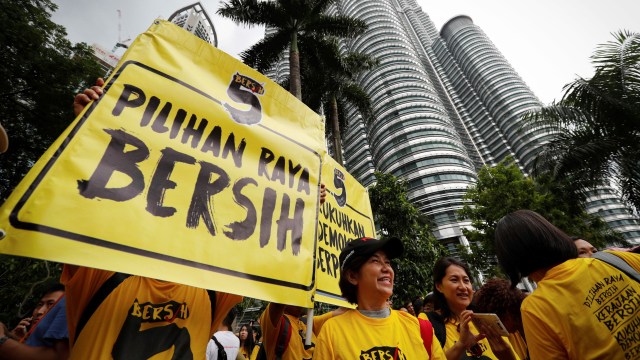
That’s all for today’s Daily Review. Coming up, we’re covering Russia-Armenia ties and South Africa’s political opposition.
Have a great day,
Jakob Cansler
More From WPR
- Paul Poast on Republicans’ calls for the U.S. to invade Mexico.
- Zikora Ibeh on carbon markets in Africa.
- Isabella Massa and Samory Toure on the SDG financing gap.
- Frida Ghitis on Georgia’s EU-Russia dilemma.

